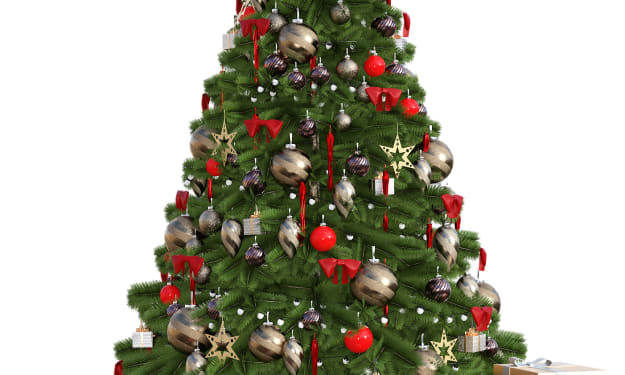Label Me: Part 1
Labels can be useful, but do they really tell people who we are?

“Who am I?”
It’s probably the most common and most difficult question we ask ourselves. It takes decades of living to answer, and even then, the answer changes and evolves as we continue living. Who we were growing up is often different from who we are as young adults and continues changing as we approach middle-age and so on.
Sometimes, when we feel we’ve finally figured it out after years of long, painstaking self-reflection, something can happen to derail all that effort, and we have to figure out who we are all over again.
Back to square one.
Well…shit.
Post-high school/College is a place and time where many of us engage in the laborious task of self-discovery. As we learn and grow, we try to pin down our identities so that when we meet new people who, in some variation of the question, ask us who we are, we have an answer.
Here’s the thing. Sometimes, we haven’t figured it out yet. We think we have an idea of who we are, but we’re not completely sure. It’s no one’s fault. It’s just, at that point in time, we have insufficient data to accurately answer the question of who we are.
Throughout my college experiences – my miserable first attempt at college (I failed out after 3 years), my foray back into school post-spinal cord injury, my time at the University of Arizona, and graduate school in Oakland – I’ve heard people answer the question of “who am I?” with a series of labels.
“I’m a business major.”
“I’m a biology major, but I’m thinking of switching to Econ.”
“I’m a thespian. Acting! Thank you!” (It’s funnier if you read that in Jon Lovitz’s voice).
“I’m a 100 meter sprinter on the track team.”
“I’m a Christian. Have you accepted Jesus Christ as your personal lord and savior?”
Rarely, if ever, did I hear anyone say, “I don’t know. I’m still figuring it out.”
It seems like there’s a stigma in being in early adulthood and still not knowing with a high degree of certainty who we are.
Maybe people throw out broad labels expecting the connotation and minutia each label carries to do the work of self-identification for them. That, or maybe they’re just looking for a quick end to a possibly long and difficult conversation. I can only speculate.
The upside with a broad label of something like “I’m a business major” is that it does tell you something, at least in general terms, about that person. It tells you what their academic interest is and possibly where their strengths lie. It suggests to a large degree what career path they’d like to follow. Maybe they’re good with numbers, planning, or managing projects and people.
Or, they could be like Michael Douglas in the movie Wall Street, looking to fuck people out of their hard earned cash because “greed is good.”
There’s quite a range.
In my late teens/early twenties, I was just as guilty as anyone of using broad labels to cover the fact that I still wasn’t sure of who I was.
Mine were things like “college student” (I switched majors a few times, one of the reasons I eventually failed out), “musician,” (I played piano and trumpet growing up, and during the end of high school and beginning of college, I played guitar and sang in a band with some friends from school) “athlete” (well, former athlete really, as I was too small and had had too many concussions to play college football), and “pet store employee” (I won’t say who I worked for, as it was a miserable place to work, I have nothing good to say about them, and they’d probably sue me for slander, but since there are really only two major corporately owned chain of pet supply stores, you have a 50/50 chance of guessing right).
I used “pet store employee” a lot. Think about it; when you meet someone for the first time as an adult, one of the first “get to know you” questions you ask or are asked is, “So, what do you do?” It’s a question of “who are you?” that nudges you in the direction of defining yourself by your job – something we are frequently guilty of doing and perpetuating.
I don’t like it, but I get why we do it. We spend a lot of time at work. Depending on what you do, you may have gone to school for a long time in order to work in whichever field you’ve chosen.
Sometimes, our jobs are also our primary social circles.
Sometimes, we even spend more time at our jobs than we do at home, not counting the hours we’re asleep.
Regardless, our jobs are easy labels we use to identify ourselves.
And if we’re working, we don’t have to do the work of figuring out who we are. Because we’re busy. And because that pallet of dog food isn’t going to put itself on the shelf.
While broad labels get us in the ballpark of our identities, they’re too vague to effectively and definitively serve as answers for the question of “who am I?”
But it’s also possible to get so specific, the label loses its impact.
As I mentioned, I went to graduate school in Oakland. The Bay Area has a different vibe from Tucson. Besides being 40 degrees cooler on average (as much as I loved Tucson, the heat kicked my ass on a daily basis), the social climate is different.
One thing I noticed when I got to Oakland was how seemingly frightened people were of saying anything that might offend someone else. This isn’t an inherently bad thing. People often stopped and thought about what they were going to say before they said it.
In the age of social media, knee-jerk reactions, and instant feedback posted without considering anything beforehand, taking a moment to think through and choose one’s words is a good thing.
However, I also began hearing a bunch of new labels I’d never encountered before, many of which described a person’s gender or sexual identity. And I was expected to know all of them and what they meant. I was hesitant to ask for fear of looking foolish or seeming insensitive, but I also didn’t want to assign the wrong label to a person.
Insensitivity and ignorance might be construed as intolerance, if not outright offensive. And at a small liberal arts college, labels like “intolerant” and “offensive” can quickly become weighty albatrosses around your neck.
Luckily, I wasn’t a total rube when it came to these kinds of labels. During my time at U of A, I had a friend, let’s call him Richard, who was really struggling with figuring out who he was. When we first met, he identified as a gay man – labels I had frames of reference for, so it was easy to process.
After a semester or two, he told me he was pan-sexual.
I’d never heard the term before. But I’d been friends with him for a while at that point, so I was comfortable asking him what that meant.
“So…like, bisexuality?” I asked.
He shook his head. “Bisexuality means you’re attracted to either male OR female. No room in between.”
There was room in between? I didn’t follow.
“Some people don’t consider themselves men or women,” he patiently explained. “I’m attracted to people, regardless of their gender or biological sex. Men, women, and everything in between and outside that.”
“So…you could like anyone then?” I said, still fumbling for comprehension.
He nodded. “Hearts, not parts,” he succinctly put it.
That made much more sense to me.
A few months later, Richard revealed that he was transgender, that he identified more as female than male.
Only this time, he seemed hesitant to talk about it.
“I don’t know, sometimes people freak out when you tell them stuff like that,” he admitted. He didn’t say it explicitly, but I got the impression that he’d told someone who’d had an adverse reaction to it – which really bothered me.
Richard was my buddy. He had a million-dollar heart. And sweet lord was he funny.
And even though he was having a hard time figuring out his identity, he often would set all that aside to be there for someone else who was going through a hard time.
I don’t know how many times I was having a bad day, and he’d stop by (we lived in the same apartment complex for the first three semesters we were at U of A together) and pull me out of my own head long enough for me to get over whatever was bothering me. Other friends of ours from school have similar stories about Richard cheering them up.
“Let me ask you this,” I said.
He looked at me curious, but concerned.
“Does being transgender change who you are?”
“Well, yeah. Eventually I’ll start hormone therapy and start thinking about gender reassignment surgery–”
“No, sorry, that’s not what I meant,” I said, mentally kicking myself for not being as clear as I should have been and sounding like an idiot as a result. “What I mean is, does that make you any less of a caring person? Or not a good friend? Or no longer one of the funniest people I know?”
He considered for a moment. “No.”
I shrugged. “Then we’re good.”
He chuckled.
“Just let me know if I say anything stupid,” I added.
“Starting now, or would you like me to share the list I’ve been keeping?”
“There’s a list?”
He laughed. “There is now.”
Well, I certainly walked right into that one. Though if I’m being honest, I’m grateful to be able to walk anywhere these day, obstacles notwithstanding.
To be continued in “Label Me: Part 2”
***
If you liked this story and/or my writing, sign up for my email list to stay up to date on new stories, upcoming features, and cool news. I promise not to overfill your inbox like a tortilla every time I make tacos.
About the Creator
Matthew B. Johnson
Just a writer looking to peddle his stories. TOP WRITER on Medium in Humor, This Happened to Me, Mental Health, Disability, and Life Lessons. C-5 incomplete quadriplegic. I love comic books, coffee, all things Dragon Age, and the 49ers.






Comments
There are no comments for this story
Be the first to respond and start the conversation.